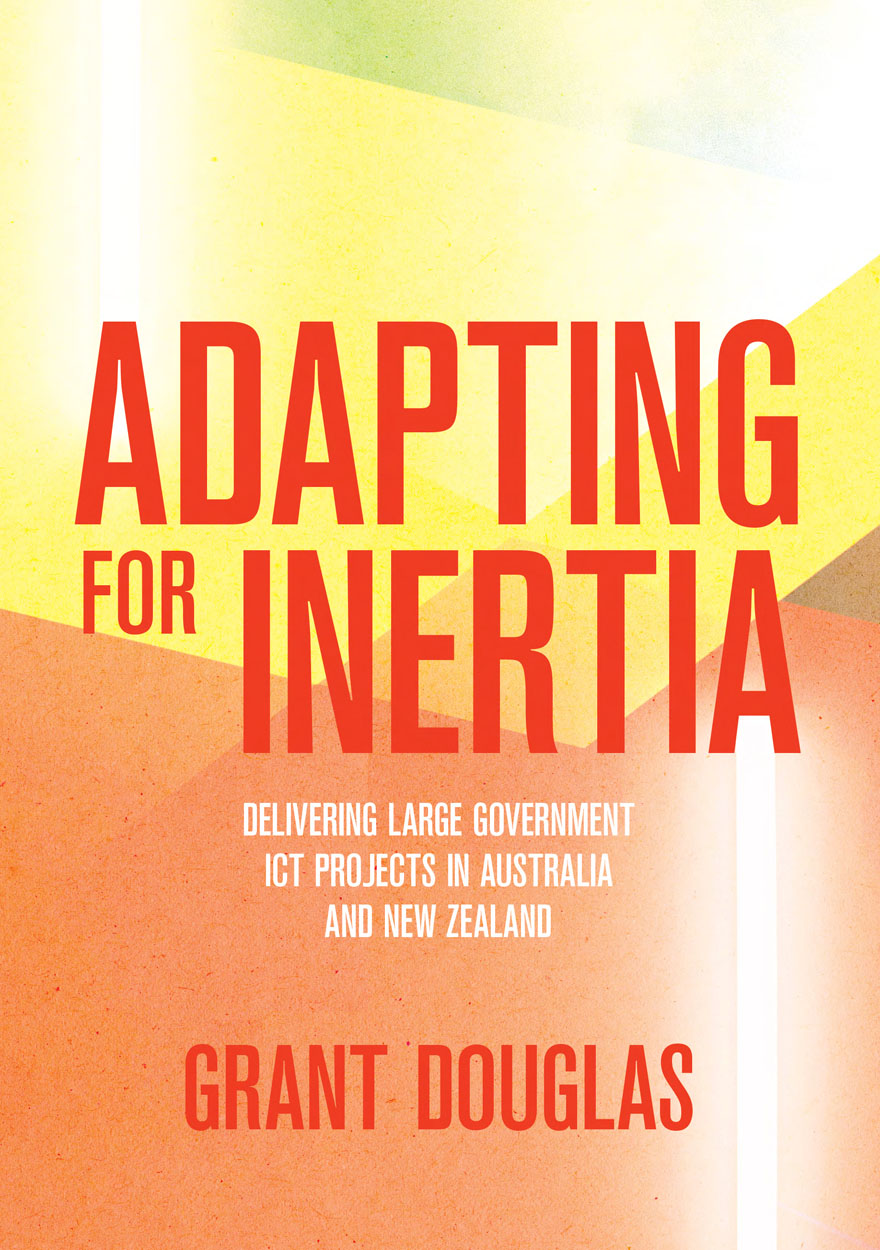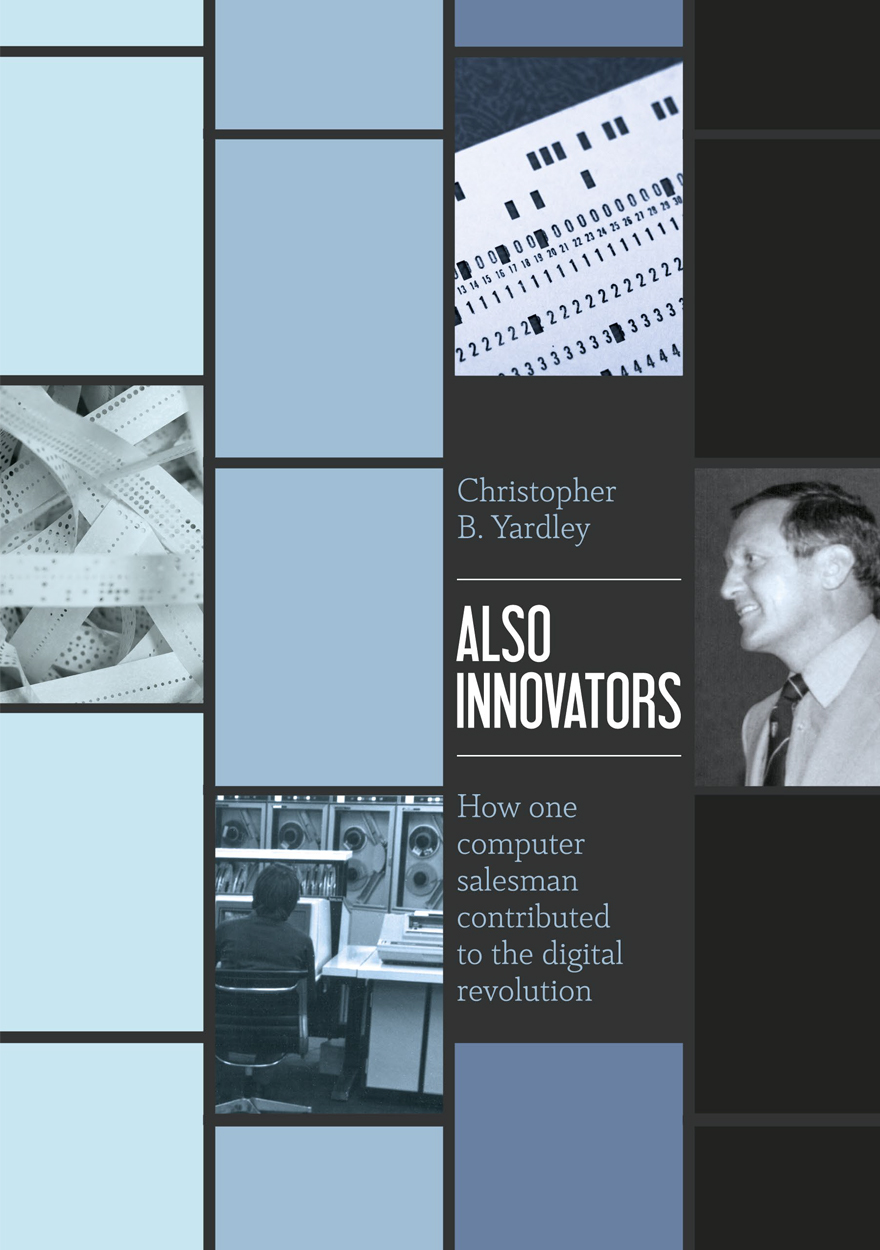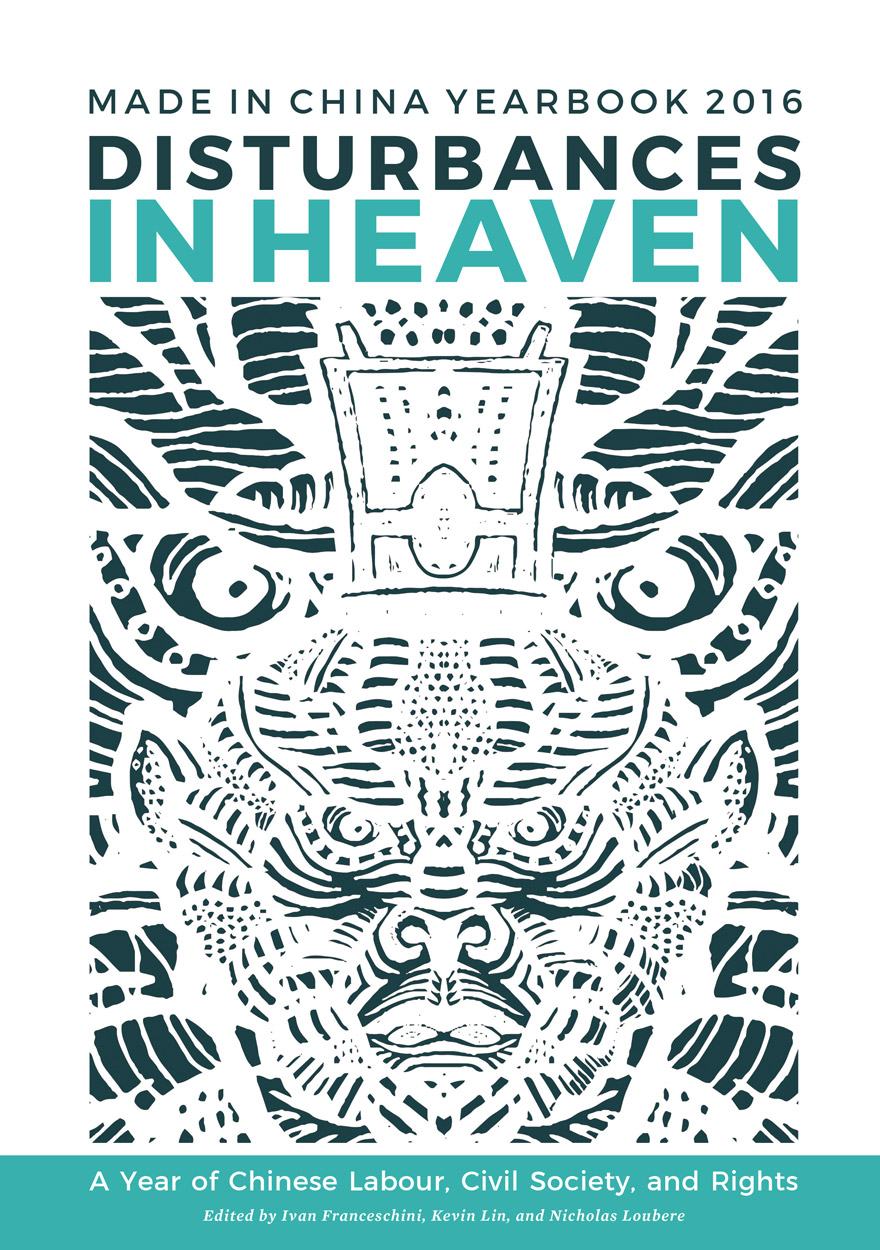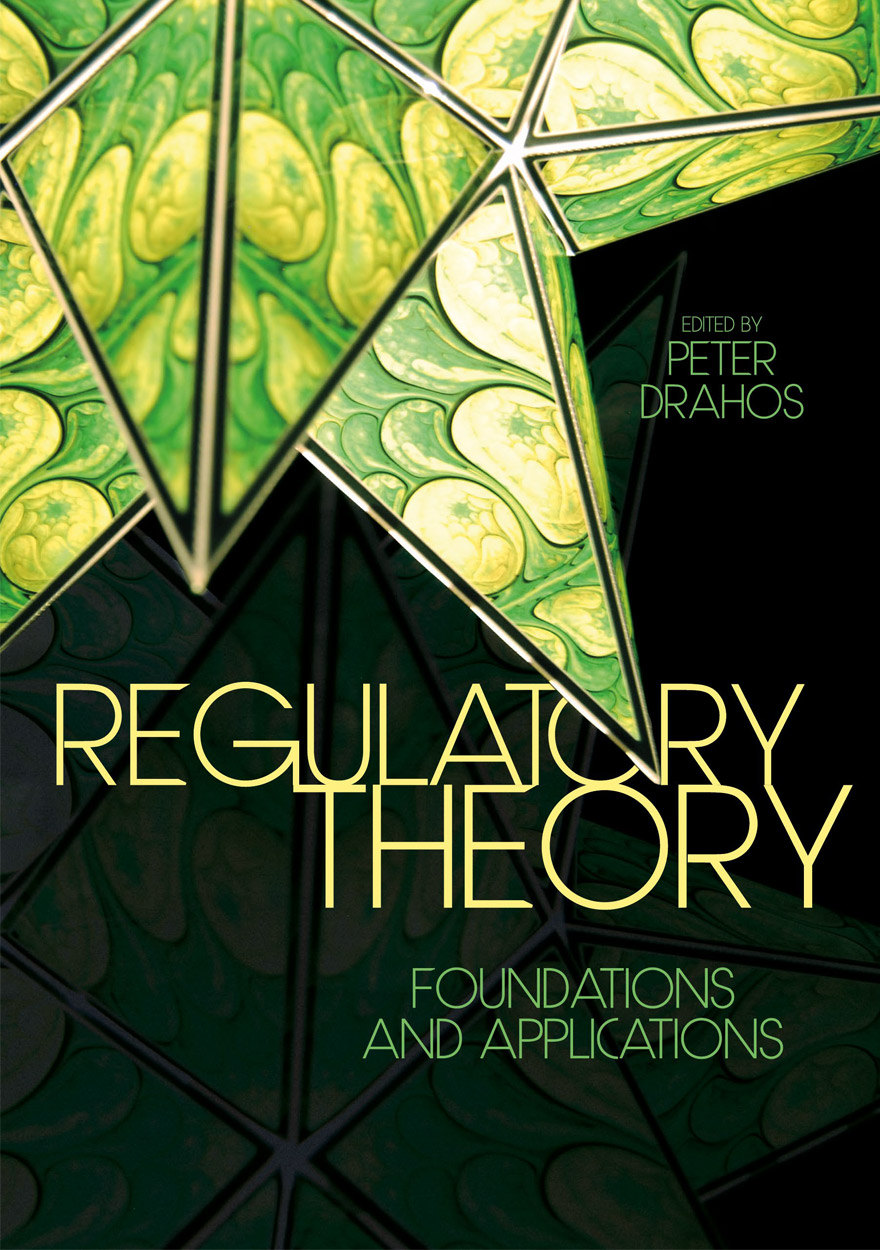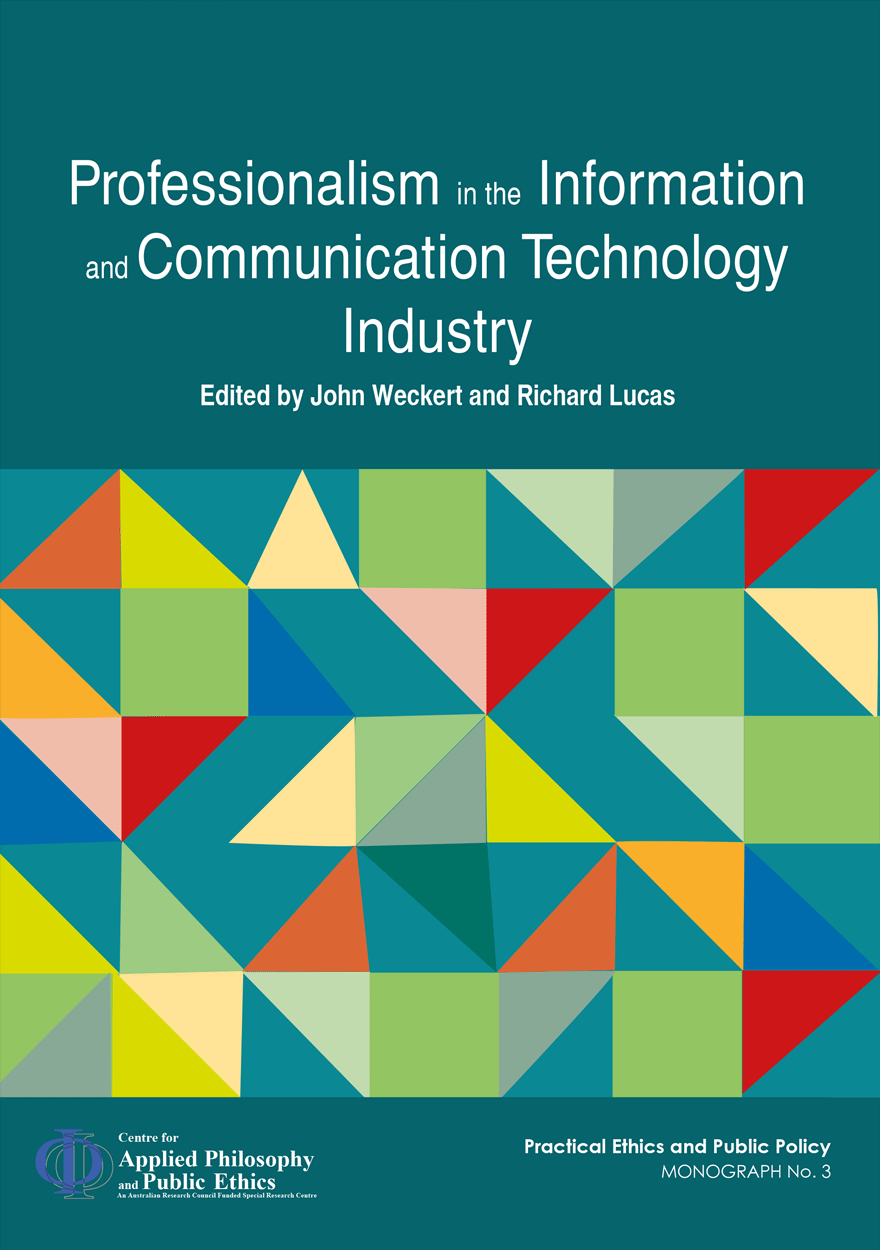
Professionalism in the Information and Communication Technology Industry
Edited by: John Weckert, Richard LucasPlease read Conditions of use before downloading the formats.
Description
Professionalism is arguably more important in some occupations than in others. It is vital in some because of the life and death decisions that must be made, for example in medicine. In others the rapidly changing nature of the occupation makes efficient regulation difficult and so the professional behaviour of the practitioners is central to the good functioning of that occupation. The core idea behind this book is that Information and Communication Technology (ICT) is changing so quickly that professional behaviour of its practitioners is vital because regulation will always lag behind.
Details
- ISBN (print):
- 9781922144430
- ISBN (online):
- 9781922144447
- Publication date:
- Oct 2013
- Imprint:
- ANU Press
- DOI:
- http://doi.org/10.22459/PICTI.10.2013
- Series:
- Practical Ethics and Public Policy
- Co-publisher:
- Centre for Applied Philosophy and Public Ethics (CAPPE)
- Disciplines:
- Arts & Humanities: Philosophy & Religion; Business & Economics; Engineering & Computer Science: Computer Science & Information Systems; Law; Social Sciences: Social Policy & Administration
- Countries:
- Australia
PDF Chapters
Professionalism in the Information and Communication Technology Industry »
Please read Conditions of use before downloading the formats.
If your web browser doesn't automatically open these files, please download a PDF reader application such as the free Adobe Acrobat Reader.
To copy a chapter DOI link, right-click (on a PC) or control+click (on a Mac) and then select ‘Copy link location’.
Section I. Regulating technology
- The fundamental problem of regulating technology (PDF, 175KB) – Michael Kirby doi
Section II. Practitioners’ perspectives
- The maturing of a profession (PDF, 145KB) – John Ridge doi
- Some ethical imperatives for the computing profession (PDF, 326KB) – Neville Holmes doi
- The uncertainty of ethics in IT (PDF, 222KB) – Mark Haughey doi
Section III. Professionalism
- What is an ICT professional anyway? (PDF, 564KB) – Clive Boughton doi
- ICT is not a profession: So what? (PDF, 138KB) – John Weckert and Douglas Adeney doi
- Being a good computer professional: The advantages of virtue ethics in computing (PDF, 135KB) – Richard Volkman doi
- Informed consent in information technology: Improving end user licence agreements (PDF, 3.4MB) – Catherine Flick doi
Section IV. ICT governance
- Virtuous IT governance: IT governors can’t be virtuous! (PDF, 910KB) – Richard Lucas doi
- The decision disconnect (PDF, 2.3MB) – Cecilia Ridgley doi
Section V. Ethics education
- Educating for professionalism in ICT: Is learning ethics professional development? (PDF, 206KB) – David Lindley, Brenda Aynsley, Michael Driver, Robert Godfrey, Robert Hart, Glen Heinrich, Bhuvan Unhelkar and Kim Wilkinson doi
- Experiential ethics education for IT professionals (PDF, 3.0MB) – Ian Stoodley, Christine Bruce and Sylvia Edwards doi
Section VI. Codes of ethics
- ICT governance and what to do about the toothless tiger(s): Professional organisations and codes of ethics (PDF, 327KB) – Don Gotterbarn doi
- Business benefits from keeping codes of ethics up to date (PDF, 166KB) – Michael Bowern and Oliver K Burmeister doi
Section VII. ICT and society
- Ethical issues of emerging ICT applications — a Euro-landscape (PDF, 340KB) – Bernd Carsten Stahl and Simon Rogerson doi
- Ethical issue determination, normativity and contextual blindness: Epistemological studies of the limits of formalism in ethics and their consequences for the theory of governance (PDF, 2.3MB) – Philippe Goujon and Catherine Flick doi
Other publications that may interest you




